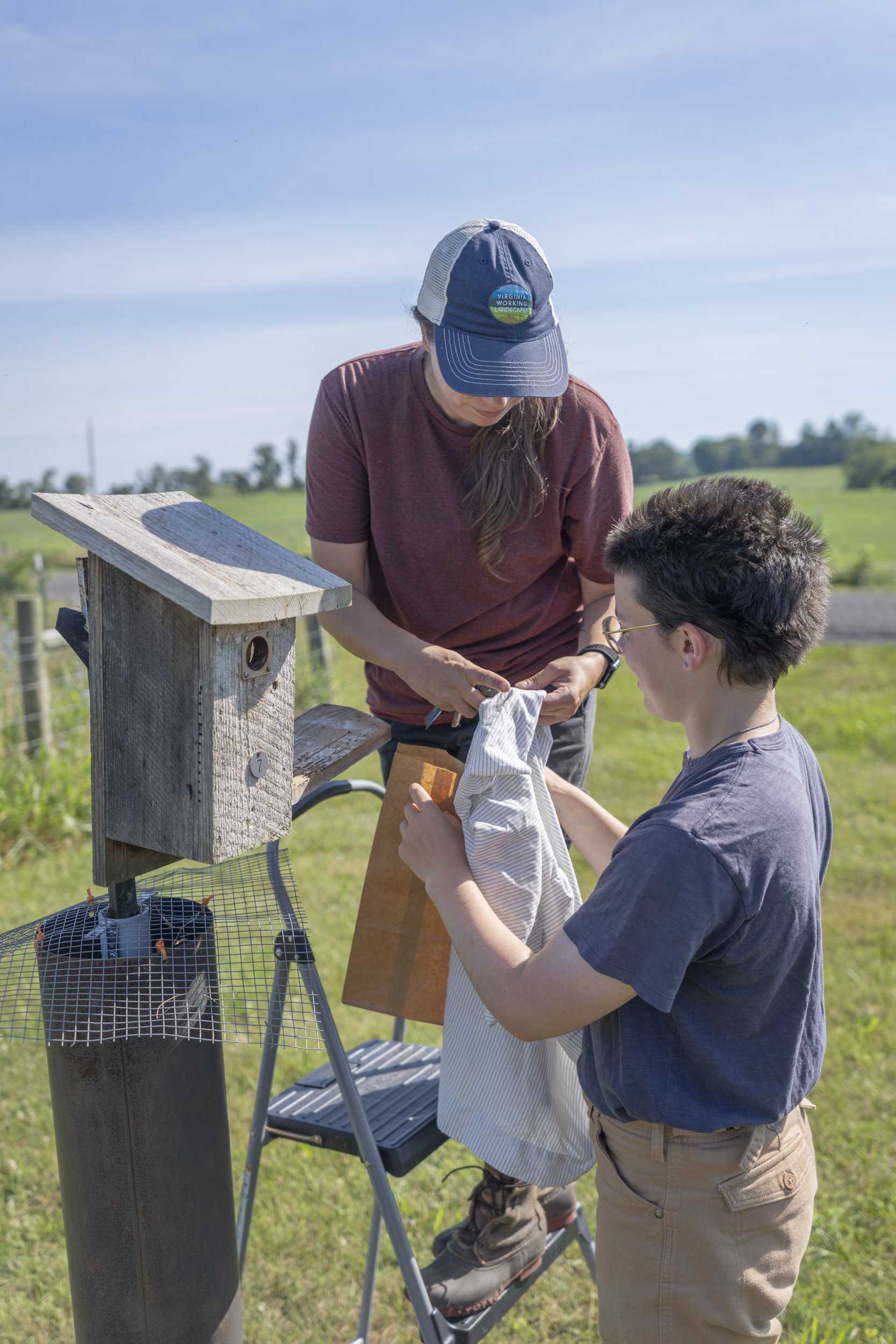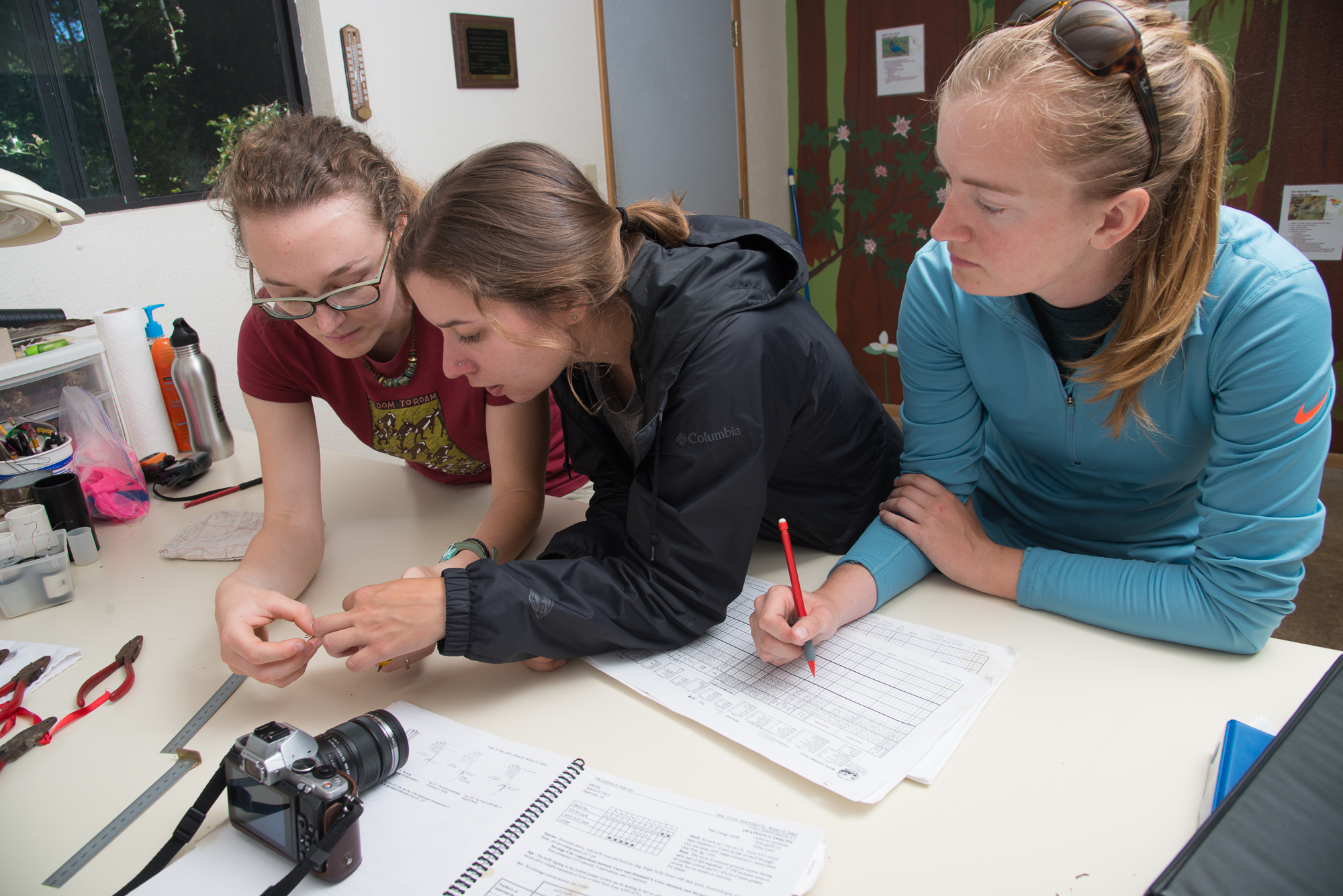Teaching and Outreach
In teaching and outreach, my goal is to help people become excited about science and the world around them. Whether teaching in the classroom, training interns for field research, or communicating with community members at outreach events, I believe sharing science can help people care more about the environment. These activities help train the next generation of scientists and create opportunities for the agricultural communities to use the results of scientific research to benefit wildlife on their properties.


Classroom Teaching
I have served as a teaching assistant for undergraduate-level courses at Cornell University and the University of Maryland. At Cornell, I was an undergraduate TA for ANSC 2400 (Animal Reproduction Laboratory), in which I co-taught a lab section for a course I had taken myself. I found that teaching this lab allowed me to engage more with the content of the course, deepen my knowledge, and become more comfortable with speaking in front of a classroom. I carried this experience to the University of Maryland’s BSCI 161 (Principles of Ecology and Evolution Lab). I independently taught a lab section, with assignments that heavily focused on group work and many different styles of assignments to play to each students’ strengths. In classroom teaching, I prioritize clear communication and engaging with individual students to make sure they are succeeding in their learning.
Research Mentoring
Through my research career, I have engaged various mentees who I have trained in field and lab methods for ecology research. While a master’s student at Cal Poly Humboldt, I mentored undergraduates as field assistants for my own research and as assistants at a MAPS (Monitoring Avian Productivity and Survivorship) station. In these experiences, undergraduates learned field methods for safely capturing, handling, and banding wild birds and designing effective research studies. Two undergraduates I mentored at Cal Poly Humboldt went on to pursue master’s degrees soon after working with me. During my PhD, I have mentored undergraduates as part of both the field and lab components of my research. I worked full-time with an undergraduate field assistant during the first year of data collection for my PhD, in which I trained my assistant on ornithology and entomology field methods. I have also trained two undergraduates in the lab processing of insect samples at the University of Maryland. My hope as a research mentor for early career scientists is that I can help them learn about study design, proper data collection and management techniques, and identify their career interests even if they do not continue in the field of ornithology or entomology.
Outreach
I strive for my research to have direct applications for conservation, making outreach a crucial component of sharing my findings. I have extensive outreach experience through bird banding demonstrations and development of educational materials for various programs with the Smithsonian Institution. As part of my research on working landscapes, I also have engaged private landowners to identify research priorities that are based in the needs of agricultural communities. I regularly interact with landowners informally while conducting research on private lands, as well as contributing to more formal outreach events. I find outreach to be a rewarding avenue to connect non-scientists with the natural world and teach people how they can contribute to conservation.